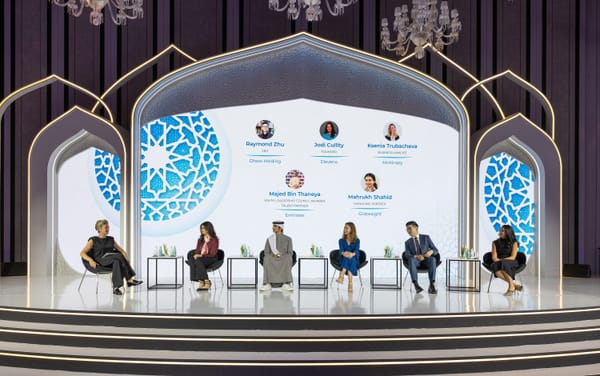Imperial’s WE Innovate goes national
How WE Innovate helps women entrepreneurs, supporting startups from flushable pads to farming pods
WE Innovate, Imperial College London’s pre-accelerator for women founders, has expanded this year to partner with universities across the UK. The programme, launched at Imperial to support women at the earliest stages of entrepreneurship, has since been adopted by Queen’s University Belfast and will extend to Swansea, Glasgow, Durham, and Loughborough by 2027.
According to WE Innovate National Lead Nadia Ahrazem, the aim is to address barriers women face at the start of their ventures. “It’s the bottom rungs of the ladder that are missing.” Continuing her message, she said. “We don’t just connect entrepreneurs with networks and funding. We build confidence, resilience, and leadership skills. Support does not end at the final pitch. Alumni remain connected to Imperial’s entrepreneurial resources.”
Ahrazem explained that WE Innovate is designed to address challenges that women face at the very start of their ventures. Many arrive without prior experience of accelerators or with limited exposure to pitching, finance, or networks. Since its launch, participants have raised more than £77 million in investment and grants. Two founders who credit the programme with shaping their businesses are Olivia Ahn of Fluus and Ifeoluwa Afolayan of MUJU Earth. Both said the structured support helped them move from research-focused ideas to customer-ready businesses. For many, the chance to practise, fail, and refine in a supportive space proved critical.
Ahn co-founded Fluus, which produces flushable, microplastic-free period pads. The idea emerged after an early prototype for a biodegradable pad proved unworkable. “We genuinely thought, if you can flush toilet paper, why can’t you flush period products?” she said Fluus pads are now stocked in Boots and will launch in Tesco in October 2025. The company has so far raised £18 million and tested its products with more than 60,000 people. Ahn said her main lesson as a founder has been “resilience,” adding: “When things go well, it can easily crash the next day. Learning to steel yourself through that is something I feel very fortunate to have.”
MUJU Earth, founded by Afolayan, is developing Aeropod, a biodegradable soil aeration capsule designed to improve yields and reduce input costs for farmers. She described farmers’ initial response as “nervous anticipation,” noting that many were open to the concept but cautious about adopting new practices. “What they’re most excited about is that it could save up to 60% of cost,” she said.
Afolayan noted how WE Innovate shifted her team’s focus from research and development to customer engagement. “We learned how to sell, pitch, and tell our story,” she explained. Winning the programme’s Grand Final was, in her words, “surreal,” having attended the event as an audience member the year before.
Ahrazem said that the programme’s national rollout is designed to spread these opportunities beyond London.
“Entrepreneurship has been very London-centric,” she said. “National expansion allows us to level opportunities across the UK while giving founders a lifelong network.”
Both founders offered advice to other students considering entrepreneurship. Ahn highlighted Imperial’s Enterprise Lab as a source of mentors and early investors. Afolayan encouraged students to begin without waiting for the perfect idea: “Experience is the best teacher. Put something out there and be open to change.”








